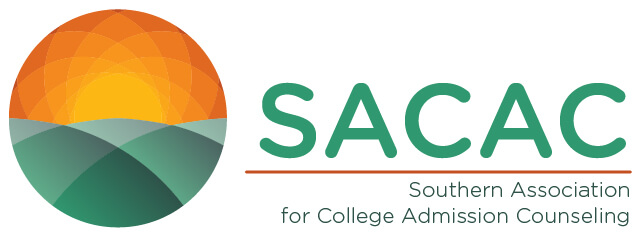
Dr. Corey Sheffield
Q: What is your title and organization?
A: Program Director, Postsecondary Access; College AIM
Q: How long have you been in this role?
A: I have been involved in the college access field since 2008 and have gained extensive knowledge and experience. I joined College AIM in July 2020 as the College Access Program Manager. In 2021, I was promoted to Program Director of Postsecondary Access. Next year, I will assume the Director of Postsecondary Access and Partnerships role.
Q: What previous roles have you held?
A: College Readiness Advisor, KIPP Through College, 2008- 2013
Director of College Advisement, KIPP Through College, 2013-2018
College Success Project Manager, Atlanta Public Schools, 2018-2020
Q: What brought you to this particular role?
A: Many years ago, I realized that this work was my true calling. There is something profoundly rewarding about being in a position where I can shape and mold the lives of young people every day. At College AIM, we work with students in Dekalb County schools, assisting with the application process and helping them understand the significant benefits of postsecondary education—a critical aspect often overlooked. This role has allowed me to share my knowledge with students and utilize my leadership skills within an organization that is rapidly evolving and growing. I am able to leverage my college access expertise to lead a program that strategically impacts the lives of students as they prepare to enter the world.
Q: How did you get started as a school counselor?
A: Before entering the college access field, I was a 7th-grade science teacher for four years. While I quickly began to experience burnout in the classroom, I was determined not to leave the field of education or abandon the students I was dedicated to serving. Fortunately, KIPP Through College was in the early stages of developing its program, and the role of College Readiness Advisor was presented to me. This opportunity allowed me to track and guide KIPP middle school alumni through the college process during their high school years. I firmly believe this was God’s way of steering me onto my true path.
Q: What is your best piece of advice for someone new to the profession?
A: This work can consume you. Please take the time to understand work-life balance. As counselors, we have to pour so much into our students but you cannot pour from an empty cup. Learn to prioritize while soaking up as much information as possible. YOU CAN’T DO IT ALL!
Q: Given unlimited time and funding, what one initiative, program, or service would you implement today for your students?
A: With unlimited time and funding, I would love to fully expand College AIM to all DeKalb County Schools and other schools within the metro Atlanta area, particularly those in underserved communities. High school counselors in public schools are often overwhelmed with large caseloads and various responsibilities, which means that college access is not given the priority it deserves. Consequently, many students do not receive the individualized attention they need in this area and fall through the cracks. This is precisely why College AIM exists. We collaborate closely with counselors in the schools we serve, as well as district leaders, but I cannot help but think about the students who are potentially overlooked due to constraints on time and resources.
Q: What brought you to SACAC?
A: When I transitioned from the classroom to the field of college access, I had limited knowledge about this area, aside from my desire to see students thrive and help them achieve their postsecondary goals. SACAC provided me with the foundational learning opportunities to grow in this field. The knowledge and insights I gained through SACAC and other professional development opportunities have shaped my career and brought me to where I am today.
Q: What has been (or hope to be) the most impactful part of your SACAC membership experience?
A: Meeting so many great people that are passionate about this work. I’ve had the opportunity to collaborate with a few individuals over the years, and none of that would have been possible without SACAC.
Q: What is your favorite part of your job?
A: The students are the true highlight of this work. Witnessing their joy upon receiving acceptance into a postsecondary program is incredibly rewarding. Many students initially approached us with the belief that they had few, if any, postsecondary options for various reasons. Transforming their doubt into opportunity is what makes this role so fulfilling and ensures that each day is immensely gratifying.
Q: What have you learned about yourself as a professional during the past year?
A: It’s okay to put yourself in uncomfortable and unfamiliar territory. When you do so, you’re forced to navigate situations, and from that, you grow.
Q: What have you learned about the students you serve during the past year?
A: If you give them the tools, they can get the job done. This is why more access programming is necessary in our schools; so many students lack the tools.
